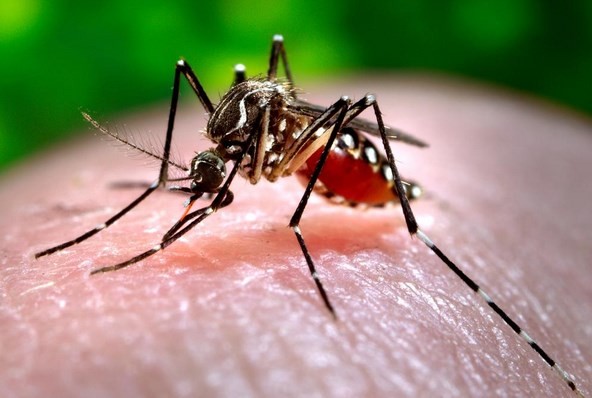A clinical trial of a malaria vaccine indicates that it could provide protection to millions of children against the mosquito-borne infectious disease, Malaria.
Experts say that the final clinical study for a malaria vaccine is a scientific breakthrough, as per BBC.
Malaria is an infectious illness caused by a parasite called Plasmodium, which is transmitted through the bites of infected mosquitoes. Symptoms include fever, headache, and vomiting, within 10 to 15 days following the mosquito bite.
The World Health Organization (WHO) records an estimated 584,000 deaths, mostly among African children in 2003.
Booster doses were limited in tests involving 16,000 children from seven African countries. The sites included Burkina Faso, Gabon, Ghana, Kenya, Malawi, Mozambique, and Tanzania.
The anti-malarial vaccines showed no effect in young infants. Meanwhile, the trial vaccine gave 46 percent immunogenicity to children 5 to 17 months of age, after receiving three doses of the vaccine.
RTS,S/AS01 is recognized as the first vaccine for malaria, which has achieved trials in an advanced stage and showed an extent of immunogenicity in young children.
The investigators believe that it is still a "long way" for a highly successful anti-malarial vaccine, though researchers have been working on the drug for more than 20 years. For the experts, they are happy to have reached this far involving the development of the said vaccine.
While the trial vaccine have showed a degree of efficacy in young children, London School of Hygiene and Tropical Medicine Professor Brian Greenwood said that he was "a little disappointed" by the findings of the study.
Greenwood expects the vaccine to be more efficient, but it is not going to match the success of measles vaccines, which are effective by 97 percent.
University of Oxford Professor Adrian Hill also had concerns, despite the trial drug having a milestone.
Hill said that a booster dose may be needed as the vaccine's efficacy is short term; however, the booster dose has lower effectiveness than the initial doses.
Despite of disappointments, Wellcome Trust head of infection Mike Turner said that even though the current vaccines provide relatively inadequate levels of immunogenicity, they are more promising than other potential vaccines.
Malaria No More UK's James Whiting also views that the vaccine is still an "important additional tool" to combat malaria, even though it has a long way to go.
The scientist are challenged to develop a highly effective anti-malarial vaccine, since the causative agent of the disease has a complex life cycle and has found its way to adapt with the immune system of the body.
Currently, there is no known licensed vaccine against malaria globally, but the European Medicine Agency will evaluate the data from the clinical trial. The vaccine could be licensed if the agency is satisfied with the results.
WHO advises people to use insecticidal nets, indoor residual sprays, and immediate treatment with combination drug therapies. Along with this, preventive measures include awareness of the risk of the disease, bite prevention, chemoprophylaxis, and prompt diagnosis and treatment.




























